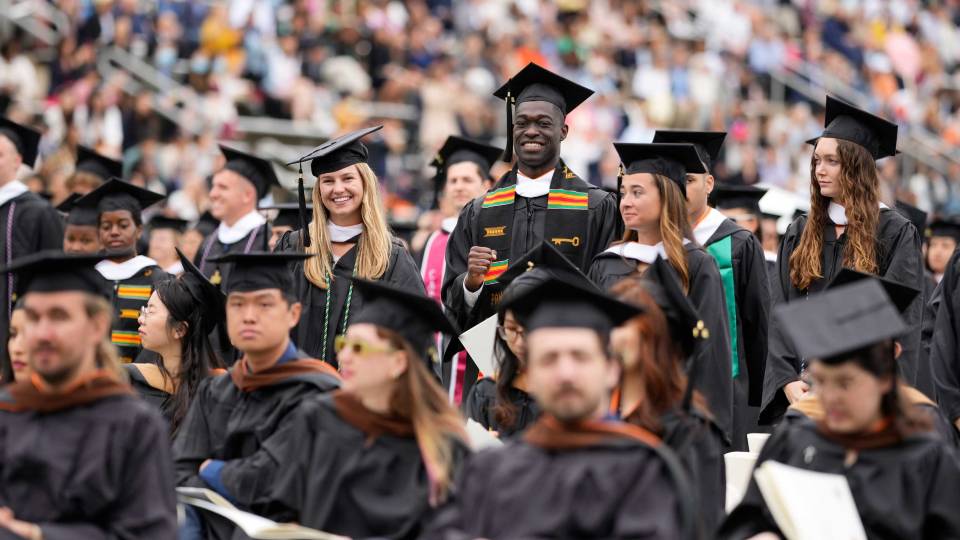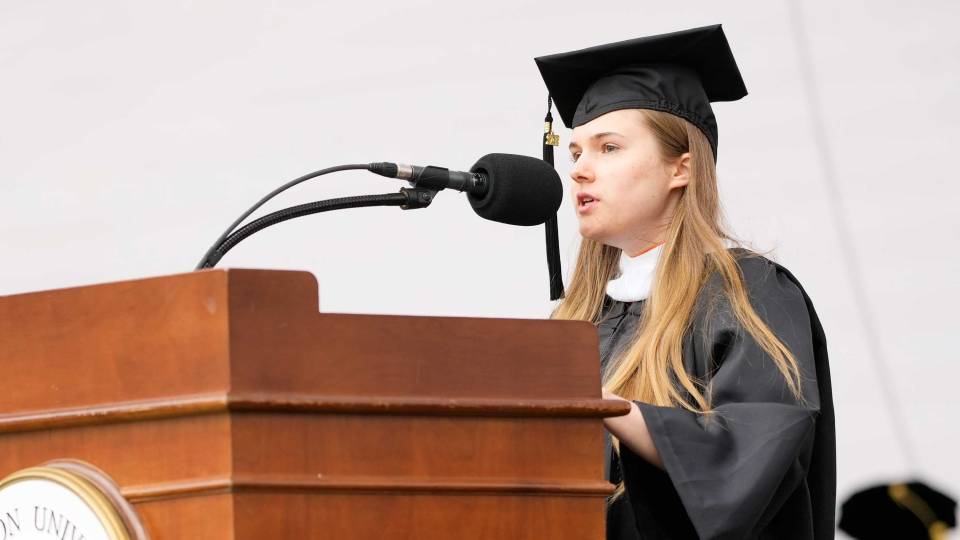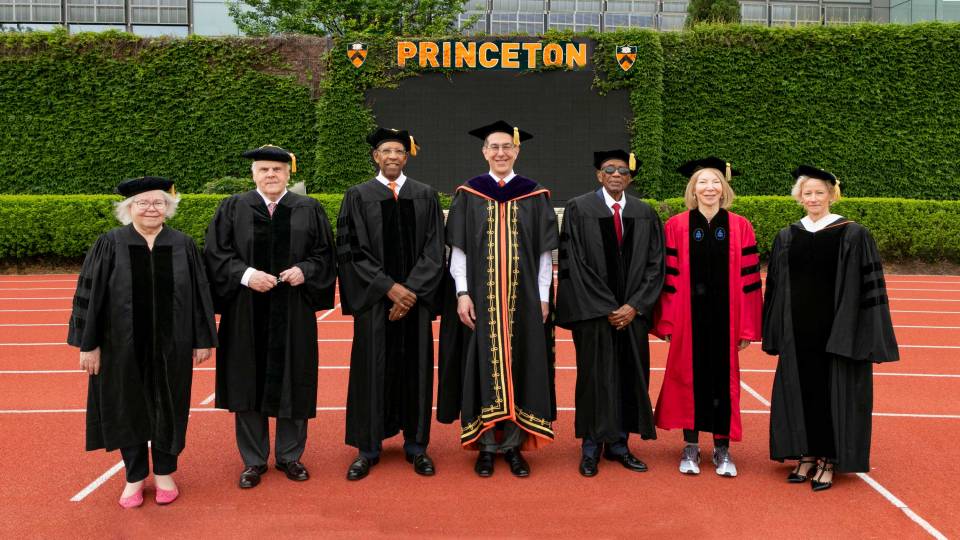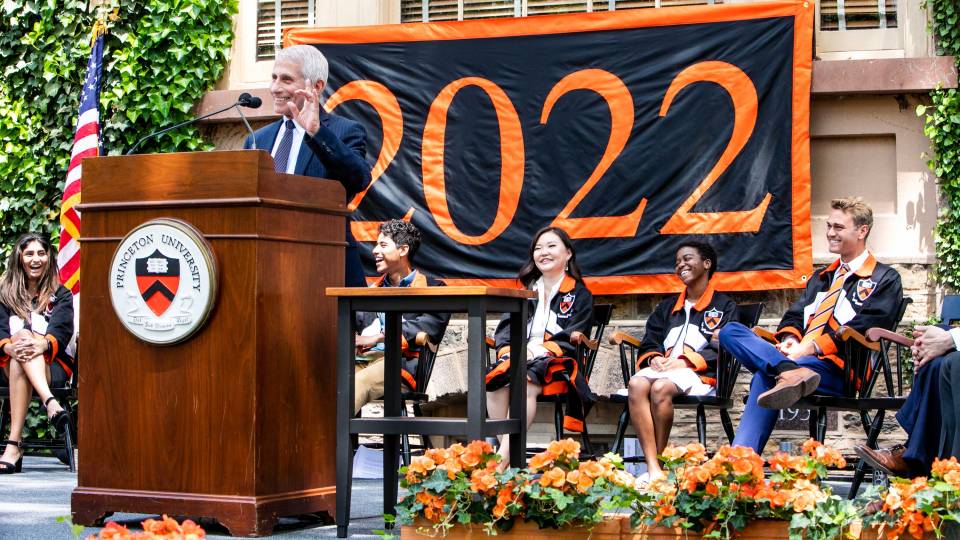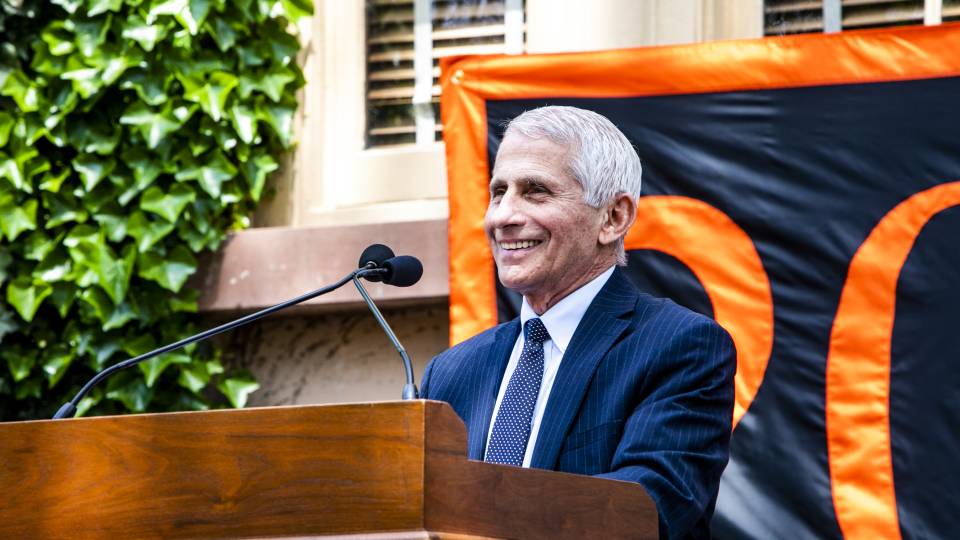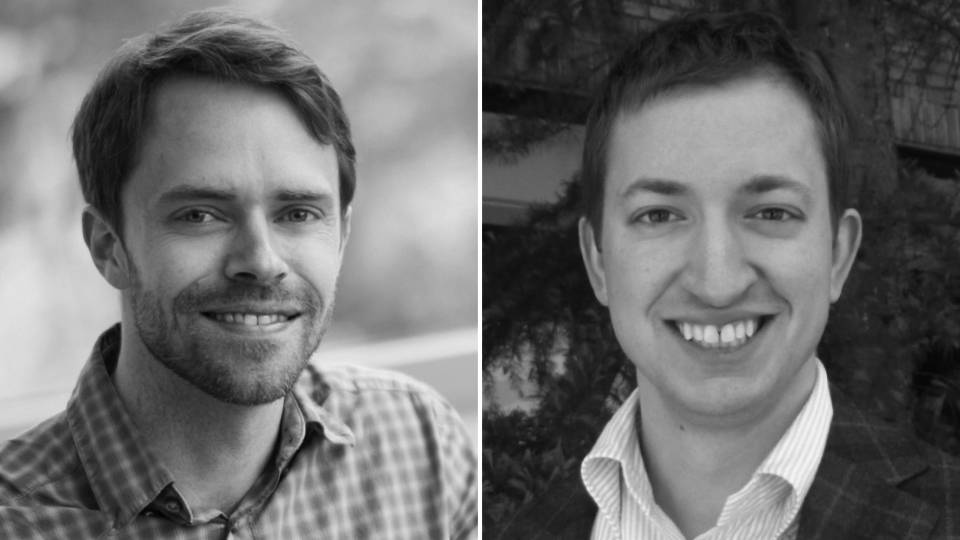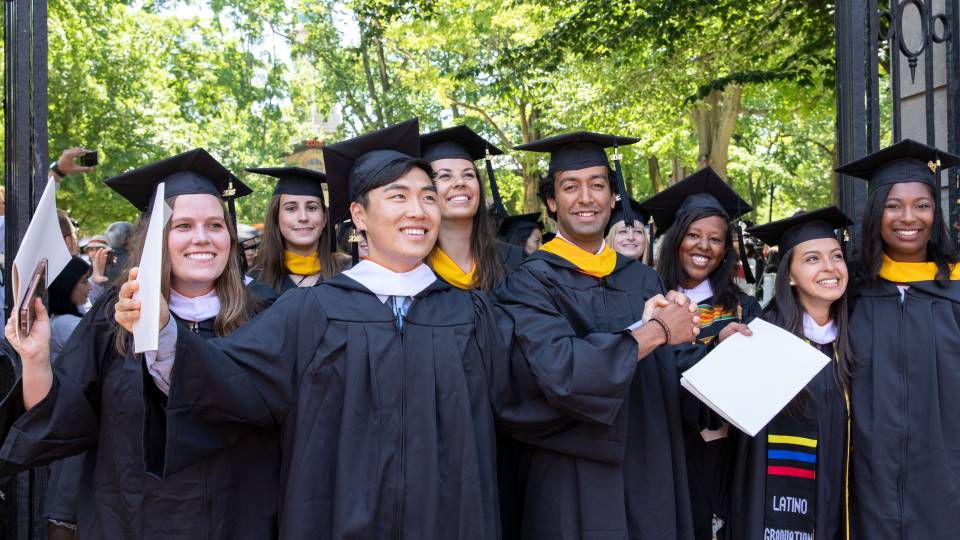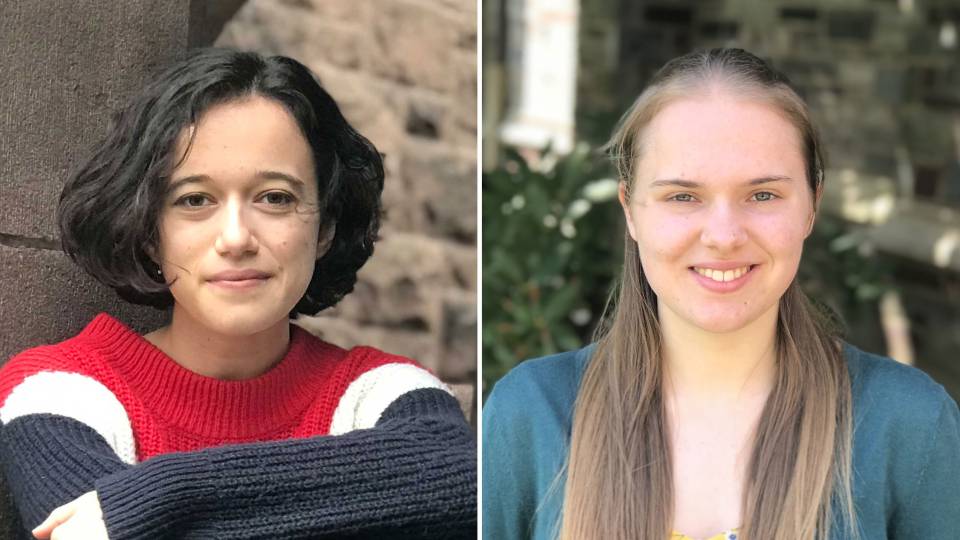Valedictorian Natalia Orlovsky speaking at the Class of 2022 Commencement ceremony on May 24, 2022.
--As prepared--
Hello, and good morning to you all.
I would like to begin with a round of thank yous. To the faculty who guided us in our academic journeys, and to the staff who worked tirelessly to keep us healthy and safe. To the generations of student activists, both past and present, who’ve fought for justice, inclusion and progress at this University. And, of course, to our families and friends, whose love and support kept us afloat over the past four years.
As I understand it, my task today is one of closure. I am to celebrate, to synthesize and to send off the past four years and all that they’ve contained. The first of these objectives is easy. In your time here, you’ve successfully navigated the 12-week semester, traversed eight whole Dean’s Dates, and conquered the independent work process. You’ve made cool art. You’ve told groundbreaking stories. You’ve advocated for change and explored systems from the microscopic, to the human, to the cosmic. I feel very lucky to have crossed paths with you all, and I can’t wait to watch you guys save the world. Congratulations.
Synthesis, as it turns out, is a harder goal. The multi-day extravaganza of graduation, with all of its processions and ceremonies and funny hats, positions this moment as a kind of temporal inflection point. In the narrow space between past and future, we are invited to stand together and to reckon with our collective experience of this place. This shared reflection is valuable, but it is also complicated. In prescribing a particular emotional arc of celebration and nostalgia, the rituals of commencement sometimes miss the complexity and diversity of student experiences at this university.
When, halfway through sophomore spring, the pandemic scattered us across time zones and continents, Princeton came unmoored from geography. For some students, it re-formed at kitchen counters in childhood homes; for others, it took shape in quiet dorm rooms, or at odd hours of the night. Abruptly, everyone’s University experience felt acutely, visibly unique — but, even outside of pandemic times, there is no such thing as a universal student experience. This is partly a matter of differences in the social and academic spaces that each of us inhabits. It is also a function of structural inequality, since Princeton and institutions like it often fall short when it comes to supporting students of marginalized backgrounds.
In other words, I suspect that we all have complicated relationships to this place, and to the idea of leaving it, and I suspect that no two students’ feelings are entirely symmetric. And so, in lieu of synthesis, I want to offer reassurance that there is no wrong way to feel about this process. Maybe, for some of you, today is a turning point, a gateway to the real world, a final celebration — or maybe, today is just a late spring Tuesday morning in central New Jersey spent among friends. Whatever this day means for you, I hope that you get to hold space for your emotions and experiences, as well as for those of others, and I hope you find happiness within it.
This brings me to my final task — the valediction, or the act of farewell. I’ve never been especially good at dealing with transience. As a child, I had this theory that the more times you revisited a memory, the further it would warp from its original shape. To avoid this, I kept meticulously detailed written records of everything from class field trips to my middle school graduation, in hopes of keeping the past as fixed as possible. As I got older, I stopped doing this, but even now, I keep catching myself trying to memorize the grandeur of Fine Hall in late afternoon light, or the mid-air acrobatics of the bees near First College, or the exact spatial layout of my thesis lab. I think that my impulse to capture these things, to freeze time, is tied to my desire to build a clean and linear account of my time as an undergrad — to somehow make sense of it.
Taking stock of how you understand your relationship to Princeton right now is important and worthwhile, but memory is not a static representation of the past. For most of us, the past four years have been messy, and complicated, and formative. Our relationship to Princeton and our experience thereof can and probably will change with time and distance. We will re-access, re-interpret, and re-synthesize these memories — and that’s okay. Dynamic and critical self-reflection can and should be a big part of belonging to any institution as complicated as this one. But this also means that today’s act of farewell is not so much a send-off of the past as it is the beginning of new interpretive process.
A farewell is a noun, but it is also a directive — fare, as in to travel, or to be; well, as in safely, successfully, and in good health. If faring well is an active process, then the act of valediction is less a closing of the past than a forward-looking prayer.
Tomorrow, we will disperse along highways and jet streams. In our new homes, across countries and continents, we will continue drifting forward, together, through time. From our current vantage point, the future towards which we travel is uncertain and, honestly, pretty bleak. The Earth is warming and the oceans rising. The legal frameworks meant to protect marginalized communities are swaying under pressure. Globally, autocracy is on the rise and the free press under threat. At the same time, activists, journalists and artists are bravely working to dismantle oppressive systems, while scientists and engineers combat public health crises and environmental challenges. In other words, there is space for hope, for action and for change.
And so, here is my valediction: I wish you safe travels and gentle landings. I wish you time for rest and time for joy. I wish you the space for critical reflection, complexity and change. More than anything, I wish you hope, even — and, perhaps, especially — in the face of uncertainty. I hope that, wherever you end up, you get to build communities founded on empathy and radical compassion. I hope you find healthy and sustainable ways to advocate for progress and change, and I hope things get better. I hope that, someday soon, we all fare well.
Thank you. Congratulations again, Class of 2022.


